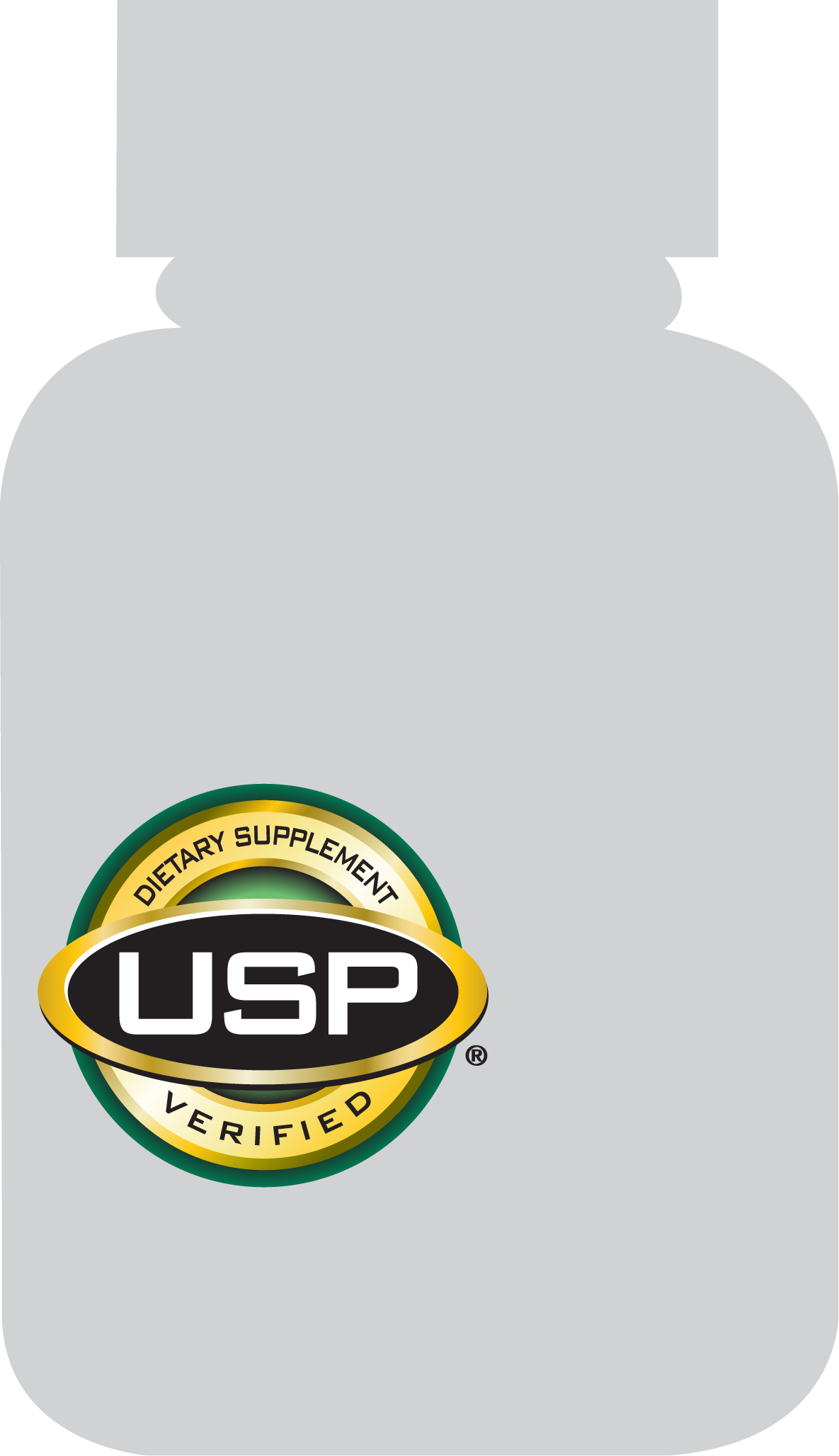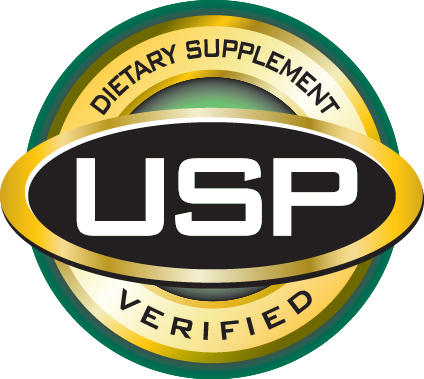Since the U.S. Food and Drug Administration (FDA) regulates dietary supplements differently than pharmaceuticals, it can be difficult for patients to know which dietary supplement products are good quality. Two out of three consumers rely on the recommendations of healthcare practitioners when choosing a supplement.
For Healthcare Practitioners

One indicator that health care practitioners can use to help ensure patients are taking quality supplements is the USP Verified Mark. The USP Verified Mark is the industry gold standard for independent product testing.

In a representative survey of licensed, practicing dietitians, nutritionists, physicians, and pharmacists, the top three most important elements when recommending a dietary supplement were:
product quality, ingredient list, and quality assurance marks or seals.

The USP Verified Mark was the #1 recommended seal/mark
by healthcare practitioners to their patients.
If it’s USP Verified, it means the product:





Healthcare practitioners should speak with their patients about the importance of choosing quality supplements and ensuring that the USP Verified Mark is present on the products they are purchasing. It is the best way to help ensure that what’s on the label is what’s in the bottle.
Learn more from this USP blog post about why HCPs should explain the importance of USP Verified dietary supplements and vitamins to patients.

To request brochures that can educate consumers and patients about the importance of choosing a quality dietary supplement, please reach out to USPVerified@usp.org.



